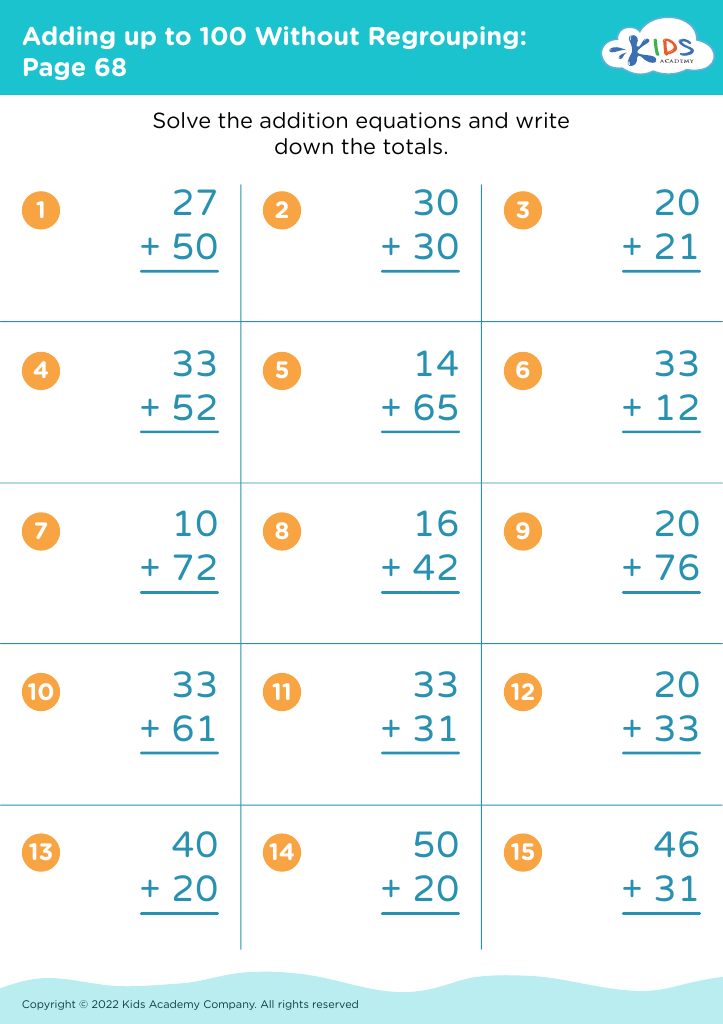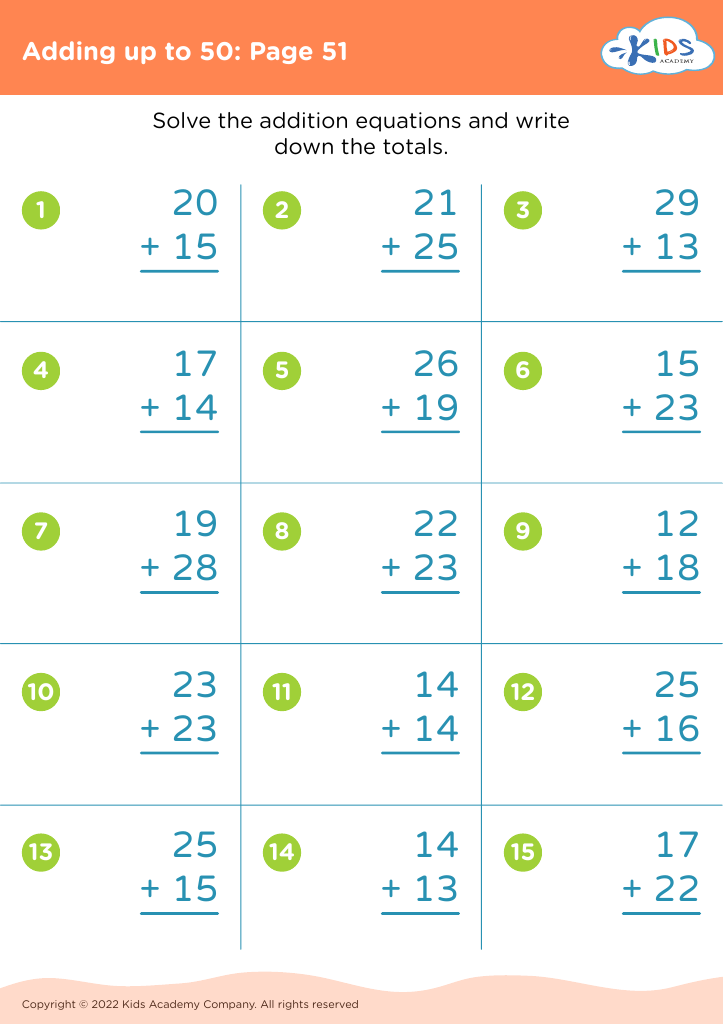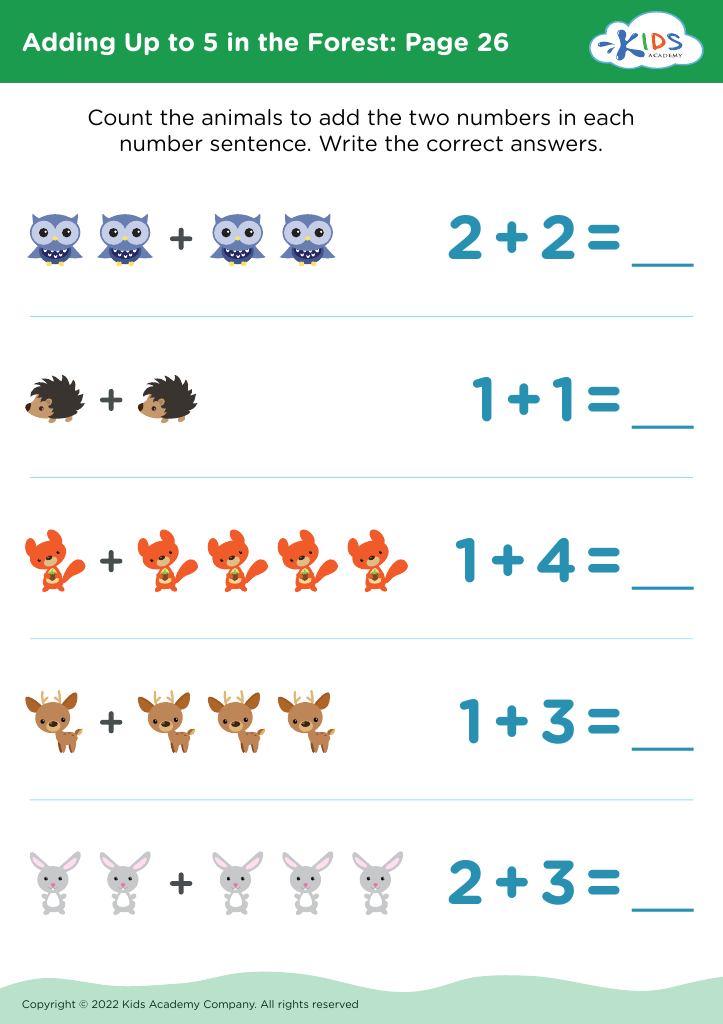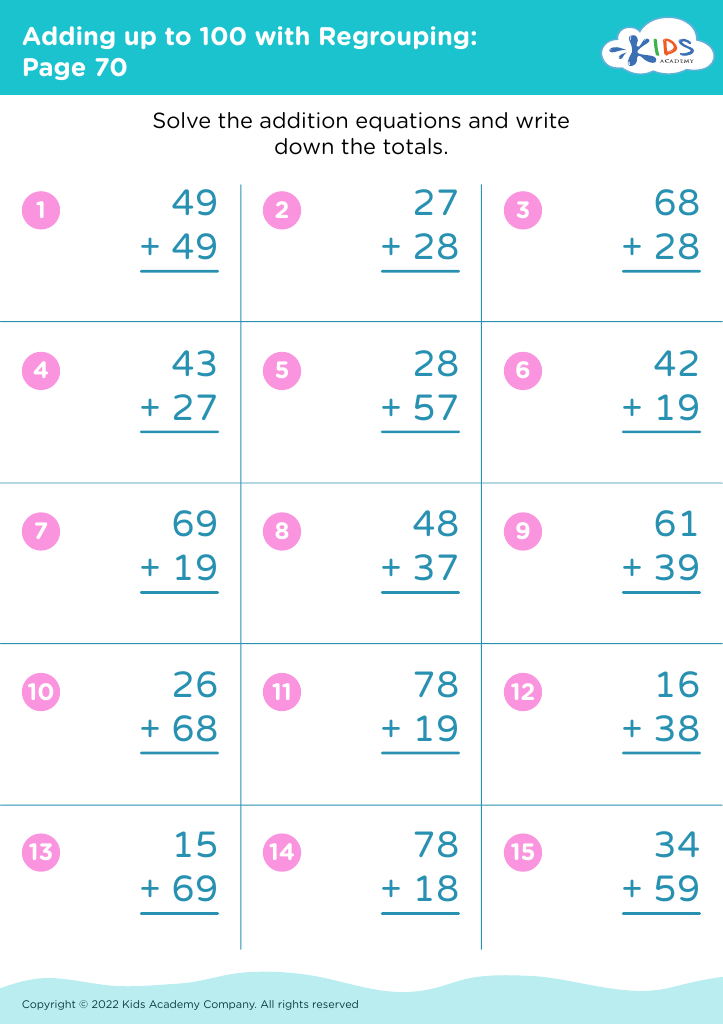Developing problem-solving skills Math Worksheets for Ages 3-9
10 filtered results
-
From - To
Boost your child's mathematical abilities with our expertly crafted math worksheets designed for ages 3-9. At Kids Academy, we focus on developing essential problem-solving skills through engaging activities and practice. Our printable worksheets cover foundational concepts such as addition, subtraction, patterns, and more, tailored to suit various learning needs. With colorful designs and fun exercises, our materials not only enhance problem-solving skills but also make learning enjoyable. Help your child build confidence and proficiency in math by incorporating these worksheets into their daily routine. Explore our collection today to support your child’s mathematical journey!
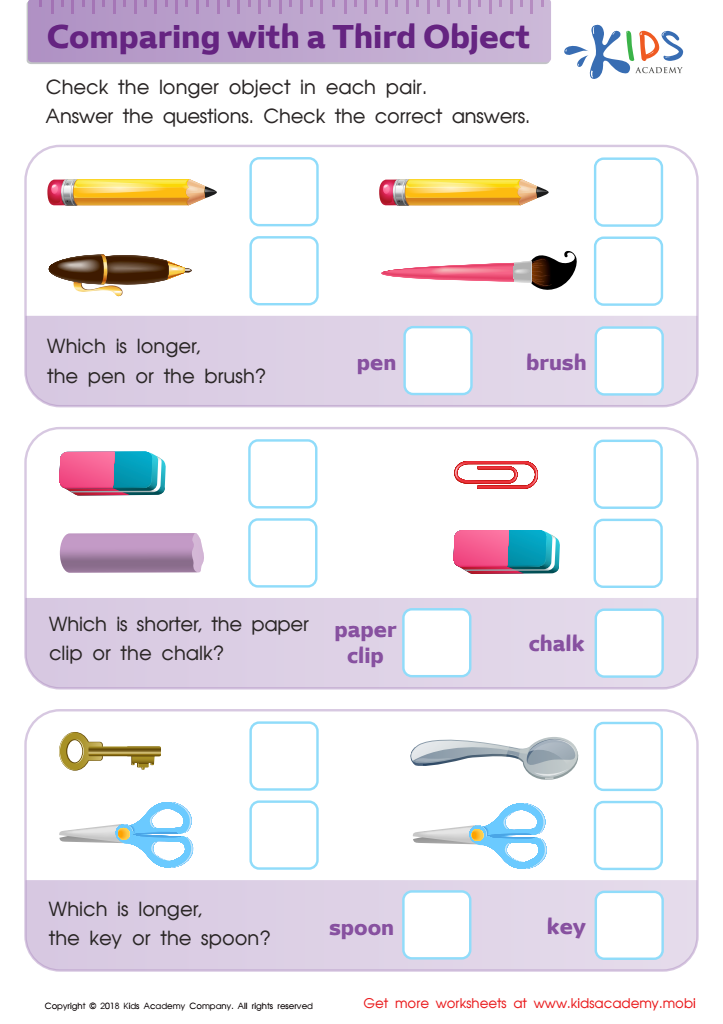

Comparing with a Third Object Worksheet
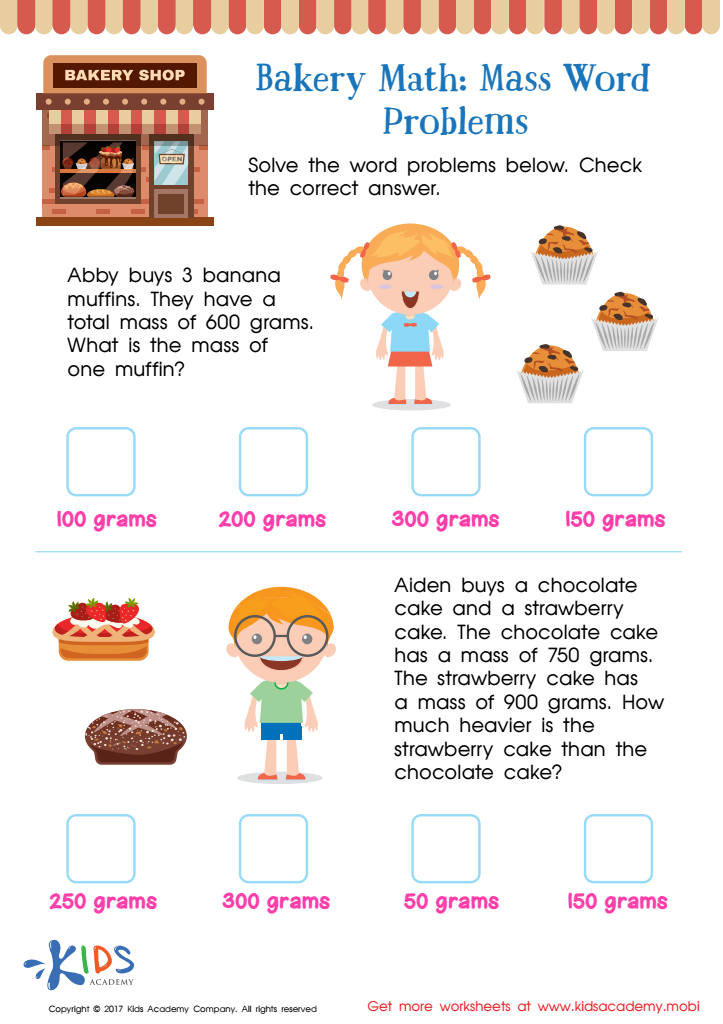

Mass Word Problems Worksheet
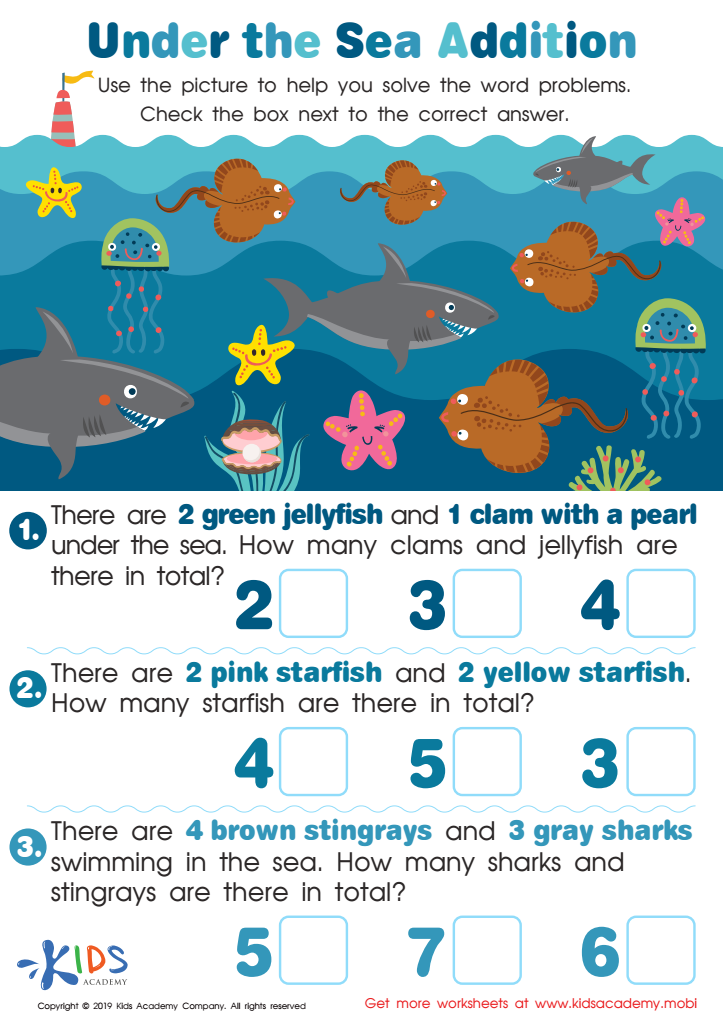

Under the Sea Addition Worksheet
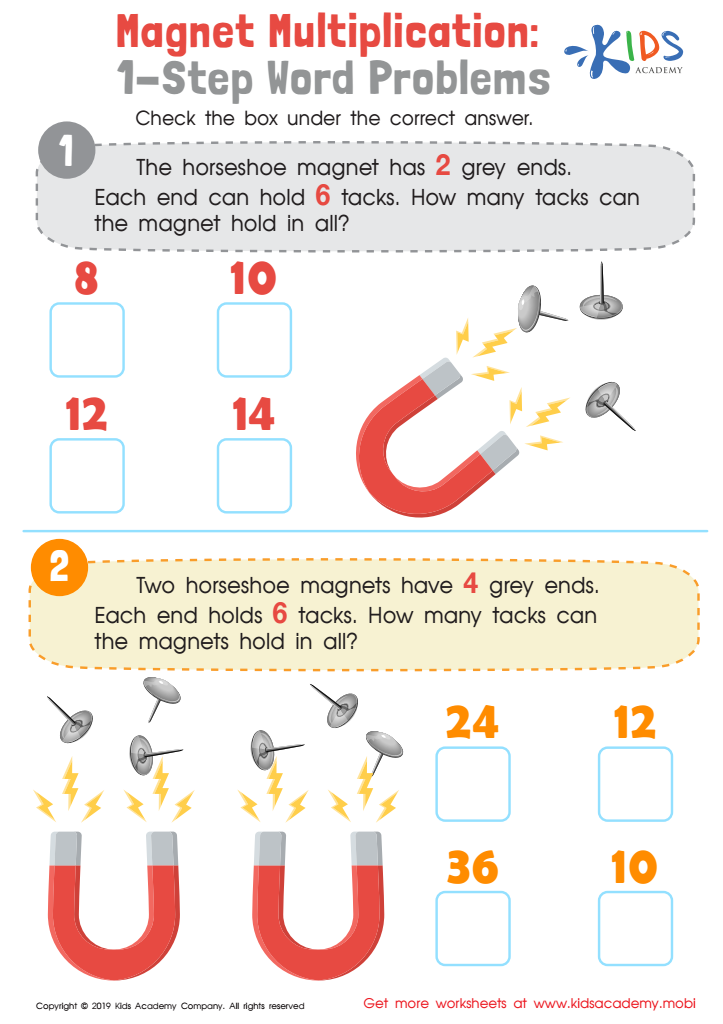

Magnet Multiplication: 1-Step Word Problems Worksheet
Developing problem-solving skills in math for children ages 3-9 is essential for several important reasons. First, it lays a strong foundation for future academic success. Early math skills are not only predictive of later achievement in math; they also correlate with success in other subjects like science and reading. Second, problem-solving helps nurture critical thinking and creativity. When children engage with math problems, they learn to strategize, identify patterns, and think logically—all skills that are transferable to everyday life situations and future career demands.
Furthermore, at this young age, kids are naturally curious and adept at absorbing new concepts through play and exploration. Introducing them to problem-solving in math can capitalize on this developmental stage, making learning enjoyable and stimulating. It also helps instill a positive attitude toward challenges, encouraging resilience and a growth mindset—attributes that are beneficial for lifelong learning.
Finally, problem-solving skills taught through math can improve important social and emotional skills. Working collaboratively on math problems teaches children cooperation and communication. It augments their ability to explain their thinking and understand others' perspectives. This holistic development ultimately fosters well-rounded individuals who not only excel academically but are also capable of navigating complexities in various aspects of life.
 Assign to My Students
Assign to My Students

